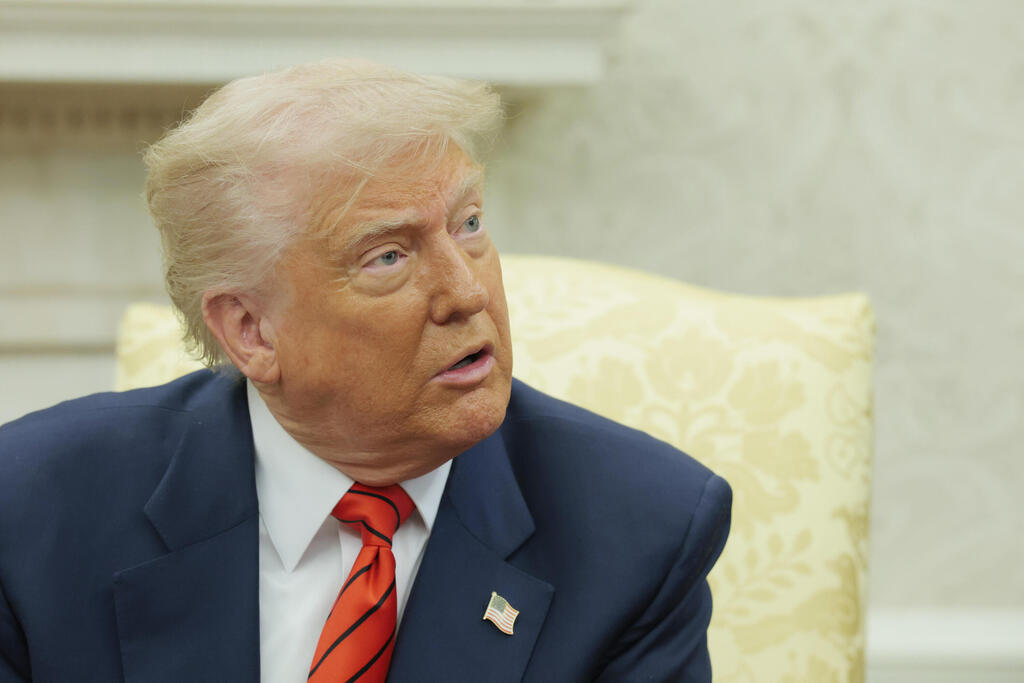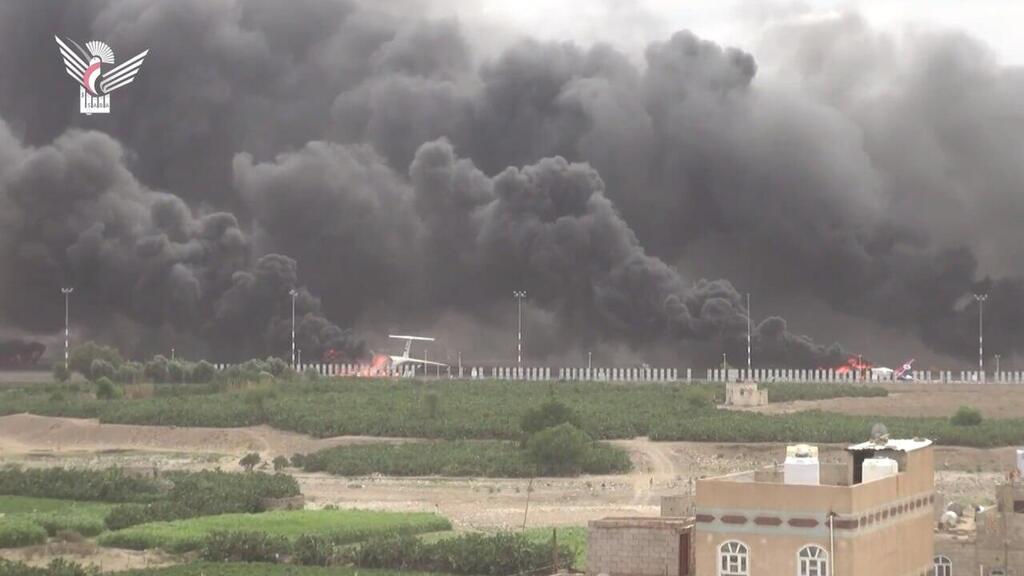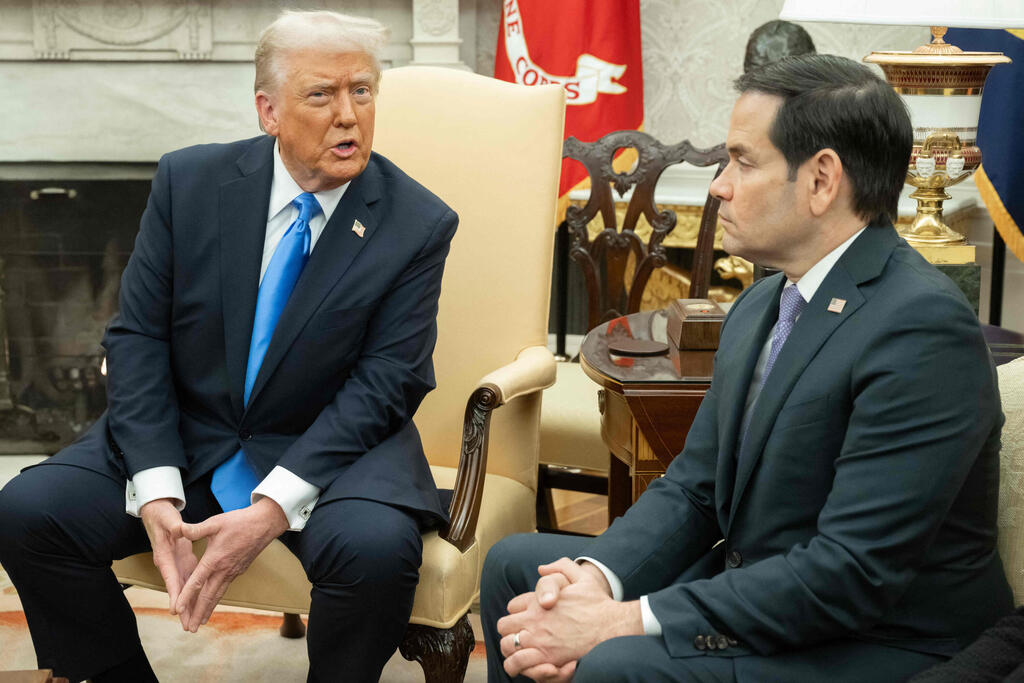U.S. President Donald Trump's unexpected announcement that American strikes on the Houthis would stop has little to do with Israel, according to Israeli officials. From Trump’s standpoint, if they stop targeting American ships, the United States is satisfied.
Still, although no one in Israel is likely to acknowledge it officially, this move is part of the growing strain in U.S.-Israel relations. Ahead of Trump’s upcoming Middle East visit, Strategic Affairs Minister Ron Dermer is scheduled to visit the White House on Wednesday, aiming to resolve disagreements and coordinate with American officials.
At the same time, families of hostages who have spoken with American officials said they were told Washington is pushing hard for a hostage deal with Hamas. The U.S. is exerting heavy pressure on Qatar, which Israel accuses of torpedoing the Egyptian proposal.
It is unclear whether these efforts will succeed. Trump’s administration is eager for a deal to be reached during his trip to the region, though that appears unlikely as Hamas insists on a full ceasefire, while Prime Minister Benjamin Netanyahu remains committed to “total victory” over the terrorist organization.
Trump announced Tuesday night that the U.S. would immediately halt airstrikes against the Houthis, claiming they “don’t want to fight” and that his administration will “trust their word” not to blow up ships. Trump explained that the decision was made following the Houthis’ agreement to stop disrupting vital Middle East shipping routes.
“It’s not a deal,” he said. “They said, ‘Please don’t bomb us anymore, we won’t attack your ships.’ They don’t want to be bombed anymore.” He made no mention of Israel. “I kind of expected it to happen, but there’s no agreement.”
Senior Republican Senator Lindsey Graham welcomed Trump’s statement and posted on X a message directed at Israel: “To my friends in Israel, do what you must to defend your airspace and your people.” Graham warned that the Houthis would jeopardize Iran if they continued attacking Israel, urging a firm response: “Without Iran, the Houthis couldn’t target America, global trade routes, or Israel. It wouldn’t take much to put Iran out of the oil business.”
The Houthis, however, denied agreeing to stop targeting American ships. “Operations in the Red Sea and against Israel will not stop until the aggression in Gaza ends,” a member of their political council told Bloomberg. Israel, which was not informed in advance of Trump’s declaration, was surprised by his comments and unclear on what they meant regarding the Houthis’ readiness to stop firing. Sources familiar with the matter said that if the Houthis cease fire, Israel will not respond. However, the assessment in Israel is that the Houthis retain missile capabilities.
According to CNN, Trump’s statement came after a “flurry of diplomatic activity” between the U.S., Oman, and the Houthis. Sources said the understanding reached was aimed at “building momentum” for renewed talks on a nuclear agreement with Iran. So far, the date of a potential fourth round of negotiations between Washington and Tehran remains unknown.
Trump also said Tuesday that he would make an “important announcement” in the coming days, before his Middle East tour next week — a trip that will not include a stop in Israel. He did not elaborate on the subject of the upcoming announcement, only describing it as “very positive.” Shortly afterward, the U.S. State Department issued a statement that may hint at what’s to come: “An important announcement regarding aid to Gaza will be made in the coming days — it will be very good news.”
Trump is scheduled to visit Saudi Arabia, Qatar and the United Arab Emirates between May 13 and 16. According to Israeli officials, there is no indication he will visit Israel during the trip, though a surprise stop has not been ruled out. Behind the scenes, frustration is mounting in Israel over the omission — reminiscent of former President Barack Obama’s first Middle East tour, which included visits to Cairo and Istanbul but skipped Jerusalem.
Trump's announcement that American strikes on the Houthis would stop
(Reuters)
Strains between Israel and the U.S. have also grown following a dramatic Washington Post report claiming that National Security Advisor Mike Waltz was fired in part for engaging in “intensive contacts” with Netanyahu about a possible strike on Iran — contradicting Trump’s efforts to negotiate a new nuclear deal and conflicting with the more restrained views of others in the administration. Netanyahu’s office denied the report, saying that while the prime minister did meet with Waltz, Iran was not discussed.
Still, Netanyahu’s office did not deny that someone close to him was in contact with Waltz. In addition to Netanyahu’s visits to Washington in February and April, Minister Ron Dermer — a trusted adviser — also traveled to the U.S. and met with senior officials. These moves have reinforced the perception that Israel is pushing Trump toward military action against Iran. Dermer is expected to meet this week with senior Trump aides, including Steve Witkoff, ahead of the president’s regional tour.
Two competing camps in the Trump administration
There are currently two main camps within the Trump administration. One includes “classic Republicans,” such as Waltz and Secretary of State Marco Rubio, who believe the U.S. should project global power, including military engagement in Ukraine, China, and Iran. Opposing them is the “America First” camp — an isolationist faction advocating that Washington focus inward and reject the role of global policeman.
This second group is led by Vice President J.D. Vance and Trump’s son, Donald Trump Jr. While the hawkish faction maintains close ties with Israel, the “America First” bloc lacks a strategic connection to the country, though some members may hold religious sympathy toward it. Within this internal American struggle, Israel is perceived as encouraging a military path against Iran, which could drag the U.S. into a conflict it seeks to avoid. This concern was underscored by a recent New York Times report that Trump had halted a joint Israeli-American plan to attack Iranian nuclear facilities.
<< Get the Ynetnews app on your smartphone: Google Play: https://bit.ly/4eJ37pE | Apple App Store: https://bit.ly/3ZL7iNv >>
Despite ongoing coordination between Washington and Jerusalem, tensions persist, fueled by nuclear talks with Iran, the U.S. withdrawal from Syria, and warming ties between the U.S. and Turkey. The dismissal of pro-Israel advisor Waltz and the rise of Vice President Vance’s influence have dealt a political blow to Israel. Vance, notably, said before the election that a war with Iran would be against American interests.








